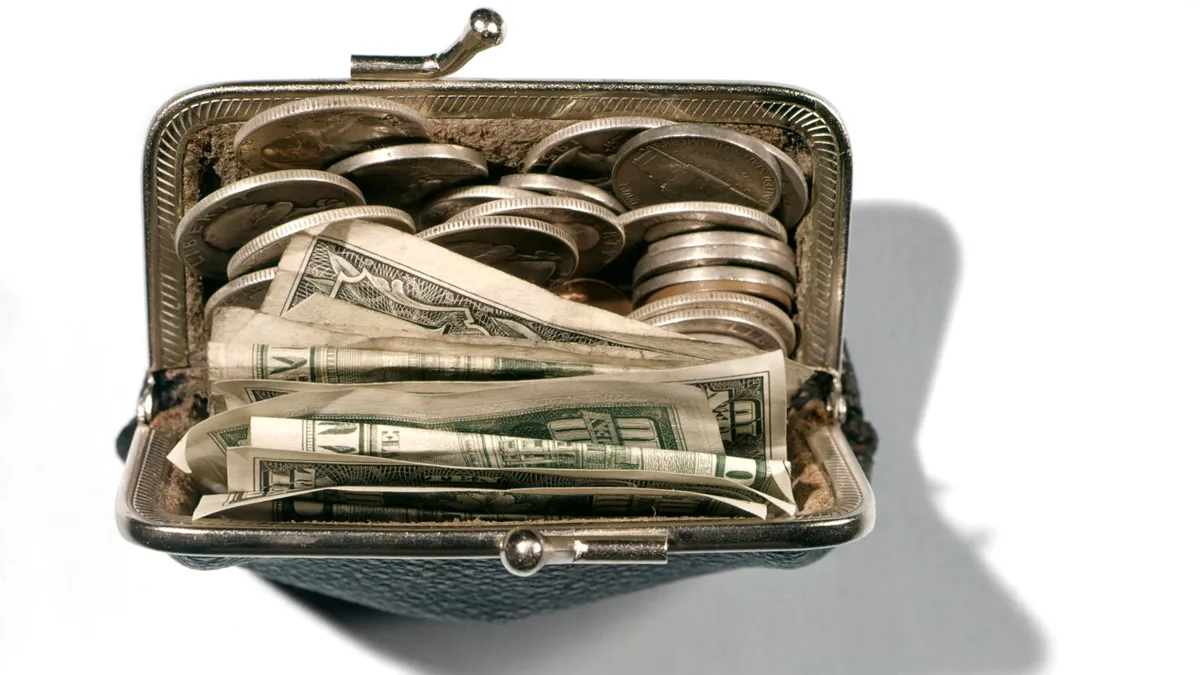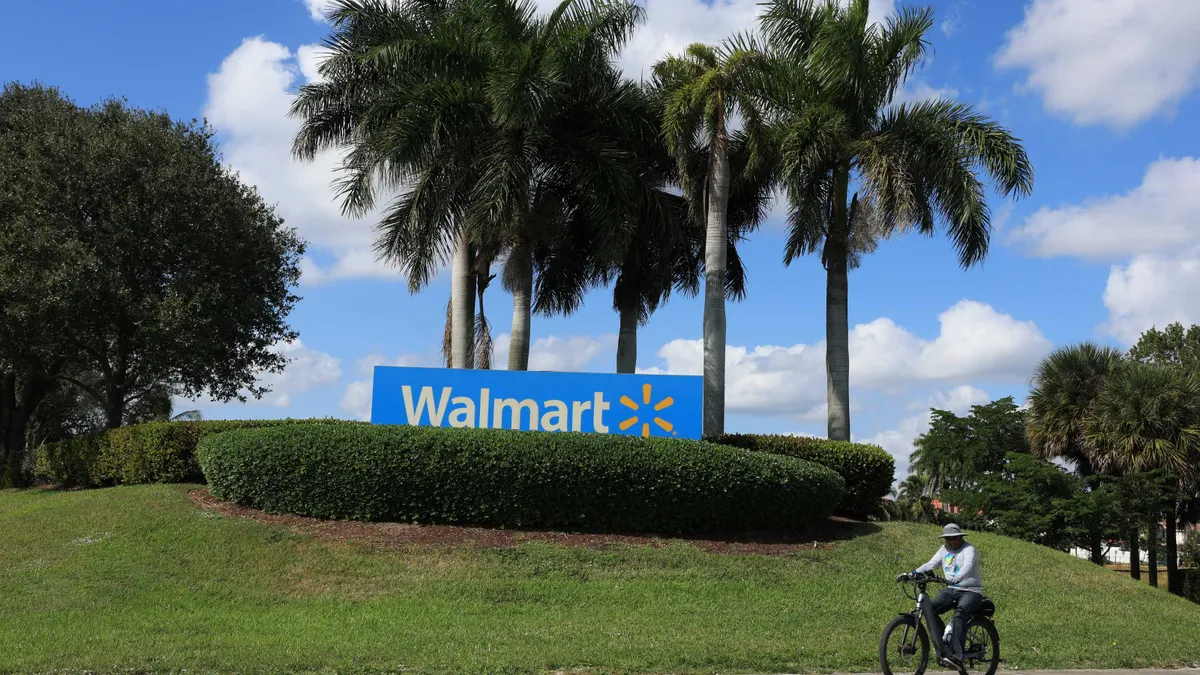With climate change prompting more natural disasters and armed conflict an ever present threat, one business professor is trying to sound the alarm over the decreasing use of cash in the U.S.
He links those calamities to trouble for electronic payments, given their reliance on electricity, telecommunications and computer systems. In the face of such disruptions, cash allows for a more resilient payments ecosystem, he says.
Beyond those reasons, there are societal benefits to maintaining a hybrid system that keeps cash in the mix, says Jay Zagorsky, a professor at Boston University’s Questrom School of Business. He makes his arguments in favor of cash in his soon-to-be-published book “The Power of Cash: Why Using Paper Money is Good for You and Society,” which will arrive in April.
Payments Dive caught up with him last month to talk about his reasoning with respect to cash and why he went to the bother of writing a book to get his message across.
Editor’s note: This interview has been edited for clarity and brevity.
PAYMENTS DIVE: Why are you so interested in cash — what attracted your attention to it as an academic?
JAY ZAGORSKY: I live in Boston, and the Boston Federal Reserve started a little over a decade ago creating this survey of consumer payments, studying how people are paying for things. They asked me, can you be an unpaid advisor to us? Basically, we'll give you dinner every now and then, pick your brain for the day. I was like, ‘sure,’ because it's always nice on the CV to throw in the Federal Reserve.
Was that part of the Fed’s cash diary research that’s still published regularly?
When I started with them, they hadn't thought about the diary. They were just thinking about general questions, and thinking maybe about doing the diary. How should we do the diary? What is the exact methods? Are we doing things the right way or not? And so they brought in a bunch of academics and a bunch of people from the payment industry to ask some really detailed questions.
Did you have a personal interest in the issue?
At the time, I was a frequent-flyer-mile chaser. I charged everything. I was trying to maximize the number of frequent flyer miles. I had a sabbatical, and my wife and I flew three-quarters of the way around the world on frequent flyer miles. So I was not a big cash advocate, but after spending a number of years looking at the data and thinking about it, I've slowly switched over time. I don't chase frequent flyer miles anymore. Instead, I try and pay cash for as much as I can.
So have credit cards dropped completely from your wallet?
Let me be very clear, I do have right now one credit card in my wallet because there are certain things you can’t buy without cash: You often can't buy airplane tickets for cash anymore. You can't buy a drink on a plane with cash anymore. There are a number of parking lots around here — there's no way to put cash in the machine. So I understand that. I'm advocating for sort of a dual society, where people use electronic payments, but also use cash as much as possible.
How is using cash good for society?
There's a whole bunch of reasons. People spend less. There are very hard budget constraints when you run out of cash in your personal wallet. There's a number of reasons for using it for helping poor people, because not everybody can afford a bank account, and not everyone can afford a debit or credit card.
What are your other reasons?
It's very clear from the data that we're having more billion-dollar disasters in the United States. We're also having more major disasters around the world. But the cashless society depends on three legs of a stool. One is electricity: You can't make electronic payments with electricity — the little machines, they need power. Second, we need communications — when you go to a retailer, for example, and you swipe, tap or use your mobile phone, you need to be able to communicate to the master server. And last but not least, we need secure computers — we need to make sure those master computers, the banks’ databases are working. When there are hurricanes, tornadoes, typhoons, fires, that's when at least one, if not two or three, of these legs break down ... So the very moment when you need to use payments during an emergency, you can't.
What if cash is just kept around as a back-up method?
You can't keep cash around as a back-up if the gas station attendant has never handled cash. Businesses need to have the functions in place, need to have the procedures. People need to know how to do things. If the supermarket clerk has never made change, because all they do is let people swipe, tap or put their phone up at the cash register, then in the moment of an emergency, when the store manager breaks out of the safe 10- and 20-dollar bills and coins, they're like ‘What is this?’ By using cash all the time, what we end up with is systems that work when they need to in emergencies.
What about potential conflicts in the world causing disruptions?
So, the world has been very much at peace. And at peace, electronic payments work wonderfully. But in a world where there's both cold and hot wars, and countries are trying to take down their enemies without actually lobbing in missiles, but rather by breaking into computer systems, if we become an entirely cashless society, there tends to be certain choke points which can eliminate the ability to do cashless transactions.
An example was the Crowdstrike incident in August. That wasn't malware, or any type of an attack, that was a mistake, but imagine something like that happened on purpose. For a number of days, people could not do electronic transactions.
Are credit cards part of the problem?
I'm not trying to say Visa, Mastercard and American Express are evil, but in general, what I think is that these large parts of the financial industry, in an attempt to boost their own profits, have spent huge amounts of money trying to convince us cash is bad, cash is old-fashioned, cash is dirty, or that cash is only for thieves or corrupt politicians.
Are blockchain alternatives or crypto part of the answer?
For me, the message is resilience. Bitcoin, Tether, Dogecoin all suffer from the same problems as the Visa, Mastercard, debit card and mobile payment system. They need electricity. They need secure computers. They need telecommunications.
So, what’s your solution?
We need to keep the economy running, and keeping it resilient means making sure everybody uses cash sometime in the week. So I'm not saying ‘Oh, burn your credit cards or chop them up, or stop using buy now, pay later.’ I can give you examples of why you should do those kind of things. But in general, I'm just trying to encourage people, once or twice a week, to use cash.
How confident are you that people will heed your message?
I’m an optimist. I’d like it to get traction. I am very concerned that it will not get traction for a very simple reason. Last year, the credit card industry spent $1 billion on advertising, internet advertising, radio advertising, TV advertising. The amount of advertising for cash, zero. The federal government did not spend any money at all saying, ‘Hey, use cash.’




















